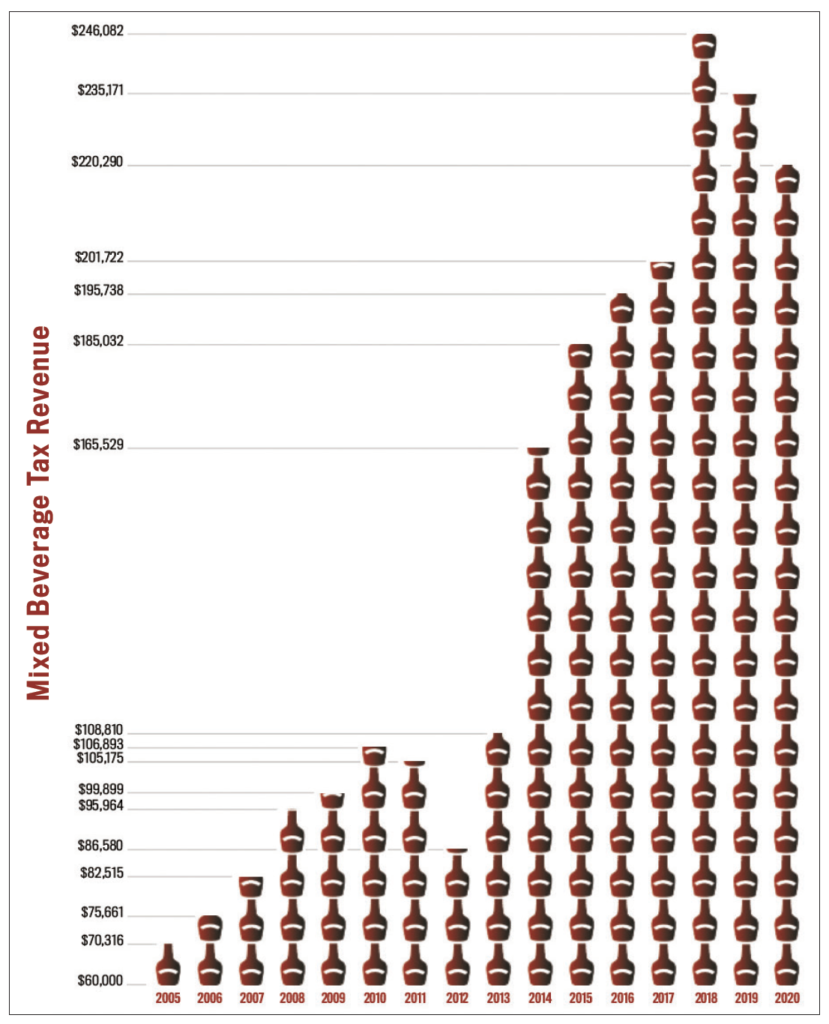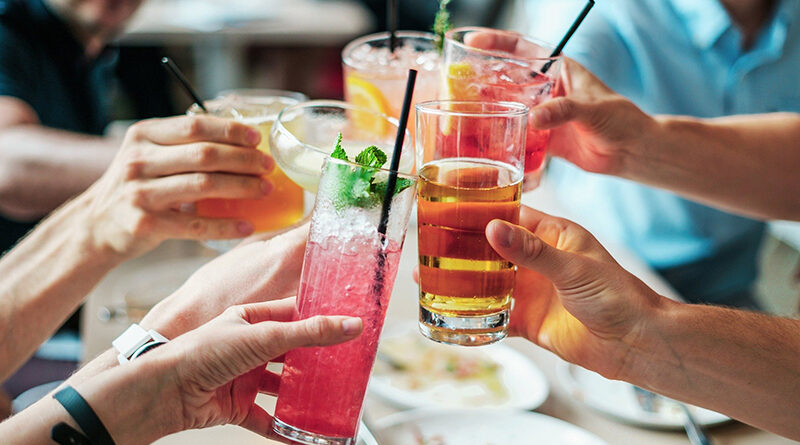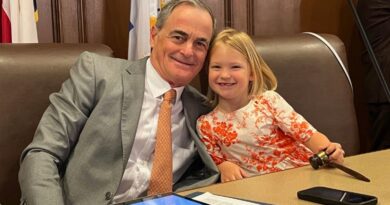A Decade After Beer, Wine Propositions, What Did UP Get?
Back when University Park restaurants needed private club licenses to sell alcohol, the city’s annual take usually wouldn’t top $100,000 in taxes.
But a decade after voters agreed to make the city wet, University Park tax revenues from alcohol sold in restaurants easily tops $200,000 a year.
Credit, in part, an assist from SMU.
“The fairly substantial climb that began in 2014, loosely correlates to the beginning of alcohol sales at Ford Stadium and Moody Coliseum,” said University Park director of communications Steve Mace.
The mixed beverages tax revenues jumped 52 percent in 2014 to $165,529.17, up from $108,810.11 the previous fiscal year, and began surpassing $200,000 annually in 2017.
“However, so many UP citizens had expressed their support for the referendums that we were convinced we would be successful.”
Max Fuqua of Plaza Health Foods and Marc Hall
As of November, about 40 businesses in the city had a Texas Alcoholic Beverage Commission license.
Pandemic limits on restaurants likely contributed to a 2020 decline in tax dollars, but city officials don’t know to what to attribute a 2019 dip.
Voters also legalized in 2010 the sale of beer and wine for off-premise consumption. However, the city doesn’t isolate revenues from that business category from other tax totals for long-term tracking, Mace said.
Still, that’s the kind of activity Max Fuqua of Plaza Health Foods and Marc Hall longed for after serving on the Snider Plaza/Hillcrest Strategic Planning Committee in 2008.
They began looking for ways merchants and property owners could raise money to reinvest in Snider Plaza and the other commercial areas and contemplated special events such as an Oktoberfest.
“Beer could not be sold at an Oktoberfest because UP continued to be dry after the end of Prohibition,” Fuqua said. “That led us to start talking about the elephant in the room, which was the alcohol tax and additional sales tax revenue our city was losing every year to other cities because we didn’t sell retail beer or wine. As a restauranteur, Marc was also acutely aware of the costs of the private club permit for UP restaurant owners and the inconvenience his customers experienced with that system.”

Fuqua said they then spoke with an elections consultant and city officials to explore the two referendum options — one to put the question of the legal sale of beer and wine for off-premise consumption to a vote, and another putting the question of the legal sale of mixed beverage in restaurants by food and beverage certificate holders.
“With no support from the city and current and former mayors in vocal opposition, Marc and I thought about giving up on the idea,” Fuqua said. “However, so many UP citizens had expressed their support for the referendums that we were convinced we would be successful.”
In early 2010, the petition process began to get the referendums on the fall ballot, he said.
“With the support of Plaza business and property owners, and the UP citizens who voted yes, we brought to the city a new sales tax revenue stream and increased overall sales tax, both of which are like a jackpot, year after year in perpetuity.”

For nearly 40 years, People Newspapers has worked tirelessly to tell the stories—good, bad, and sublime—of our neighbors in the Park Cities and Preston Hollow. To support our efforts, please contact advertise@peoplenewspapers.com for advertising opportunities. Please also consider sharing this story with your friends and social media followers.










Still can’t figure what had the city and especially the mayor at the time so adamantly against this proposal. The misinformation they spread back then was amazing–covered in pretty good detail by the Park Cities People. It didn’t make sense, but their methods at the time have since made me question the integrity of city leaders